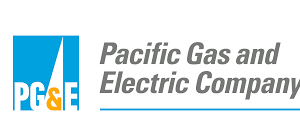By WUD Government Affairs Team
Following a historic tie–breaking vote on August 6th in the U.S. Senate by Vice President Kamala Harris, the U.S. House of Representatives passed the $430 billion U.S. Inflation Reduction Act on Friday. The bill aims to lower healthcare costs, promote clean energy, and increase corporate taxes when inflation is at its highest in decades.
On July 27th, Senate Majority Leader Chuck Schumer and Senator Joe Manchin released legislative text for budget reconciliation legislation or a compromise plan. This text replaced the legislative text of the House–passed Build Back Better Act.
Following is a summary of the tax provisions in the Inflation Reduction Act of 2022, which include:
- establishing a corporate minimum tax;
- modifying the tax treatment of carried interest;
- establishing an excise tax on drug manufacturers, producers, and importers who fail to enter into drug pricing agreements;
- extending the health insurance premium tax credit modifications made in the American Rescue Plan Act of 2021 (ARPA; P.L. 117–2) through 2025;
- modifications to the tax treatment of the energy sector that would generally reduce revenues; including
- extension and modification of the credit for electricity produced from certain renewable resources;
- extension and modification of the energy credit; and
- extension of excise tax credits for alternative fuels, biodiesel, and renewable diesel
For additional information on what is included in the Bill, please visit the Inflation Reduction Act One Page @ senate.gov. Some other key details of the legislation include:
- Affordable Care Act premiums: At the end of this year, 13 million Americans would have seen their Affordable Care Act premiums increase after subsidies expanded in COVID–19 spending bills expired. The bill extends those subsidies until 2024, and President Joe Biden’s Democrats say they will save each individual $800.
- Cap on drug costs for senior citizens: Starting in 2025, the bill caps the amount that millions of senior citizens who receive Medicare will pay in annual drug costs at $2,000.
- Lower drug prices: These won’t be felt in American wallets until 2026. The U.S. government will start negotiating the price charged for the top 10 most–used drugs with pharmaceutical companies in 2025.
- Electric vehicle credits: Some car buyers may be able to redeem rebates for buying electric vehicles at auto dealerships as soon as this year, including $7,500 for new and $4,000 for used vehicles, depending on income. The U.S. Treasury needs to write regulations on that income verification, and the administration needs to specify exactly which vehicles qualify under battery sourcing and critical minerals rules. Critics suggest that no vehicles currently being sold on the U.S. market will qualify for the new vehicle credits as the batteries are made in China.
- Homeowner credits: The bill provides $4.28 billion in home rebate programs that will be administered in each state, which must establish guidelines, such as income limits. The program includes up to $1,750 rebates for heat pump water heaters, up to $8,000 for heat pump systems for heating, ventilation, and air conditioning (HVAC), and additional rebates for upgrading electrical panels and improving insulation. The program runs through Sept. 30, 2031.
- Solar panels and solar battery systems: Homeowners who install residential solar panels or solar battery systems will qualify for a 30% tax credit for installations until Dec. 31, 2034. The credits will be made available after respective states design the rules of the program.
President Biden is expected to sign the bill any day.
Producers with questions about how the Inflation Reduction Act may affect their business can reach out to WUD CEO Anja Raudabaugh at [email protected].













